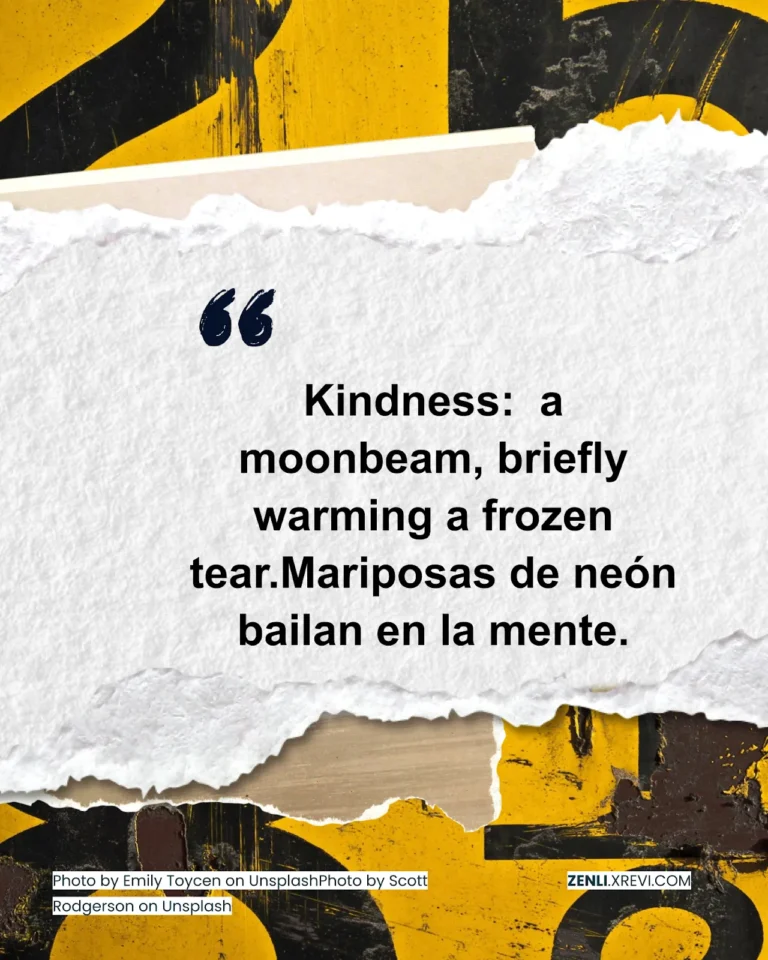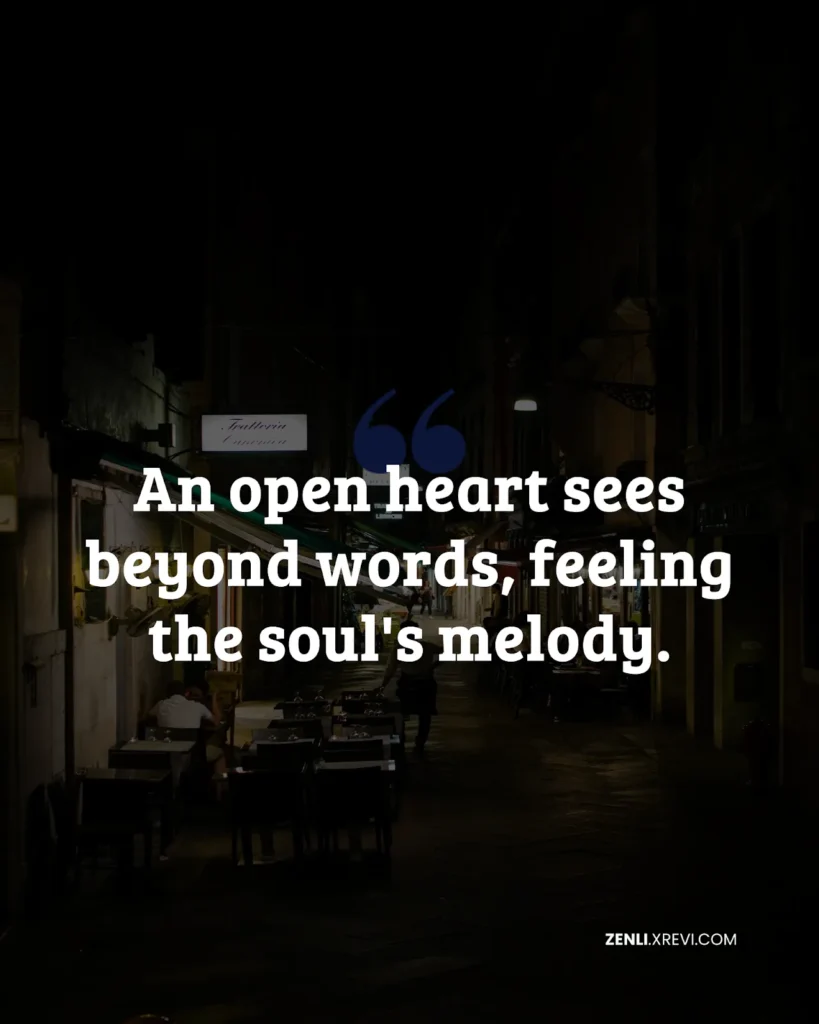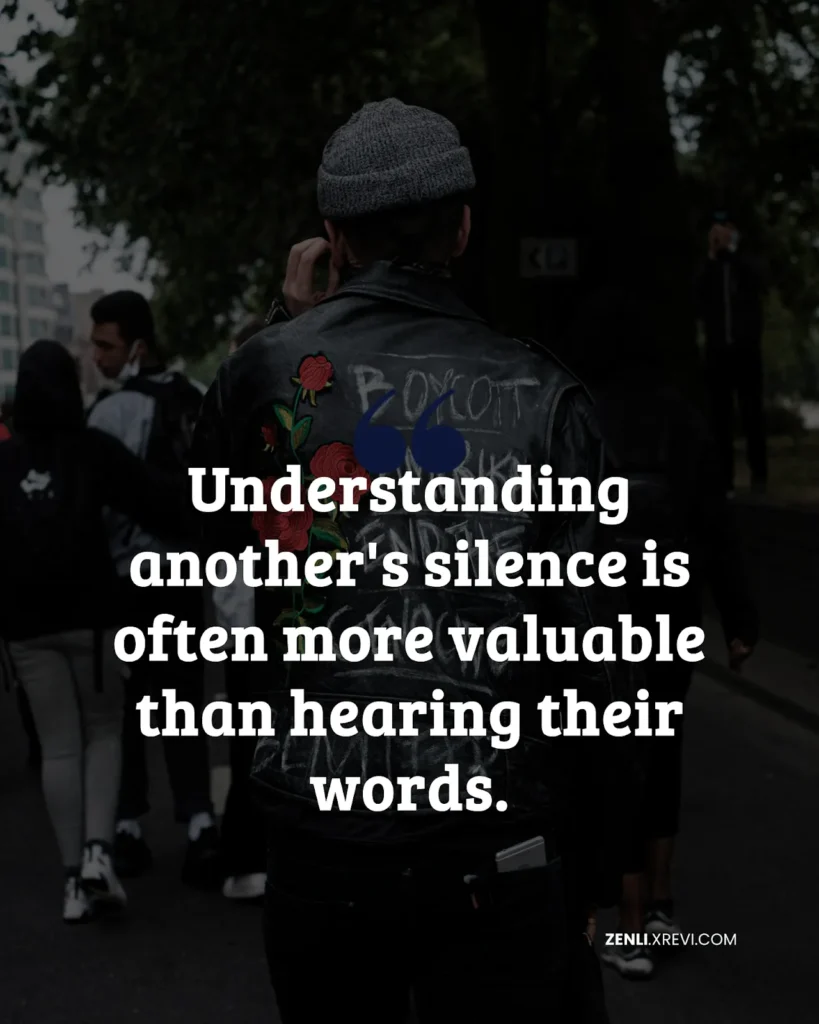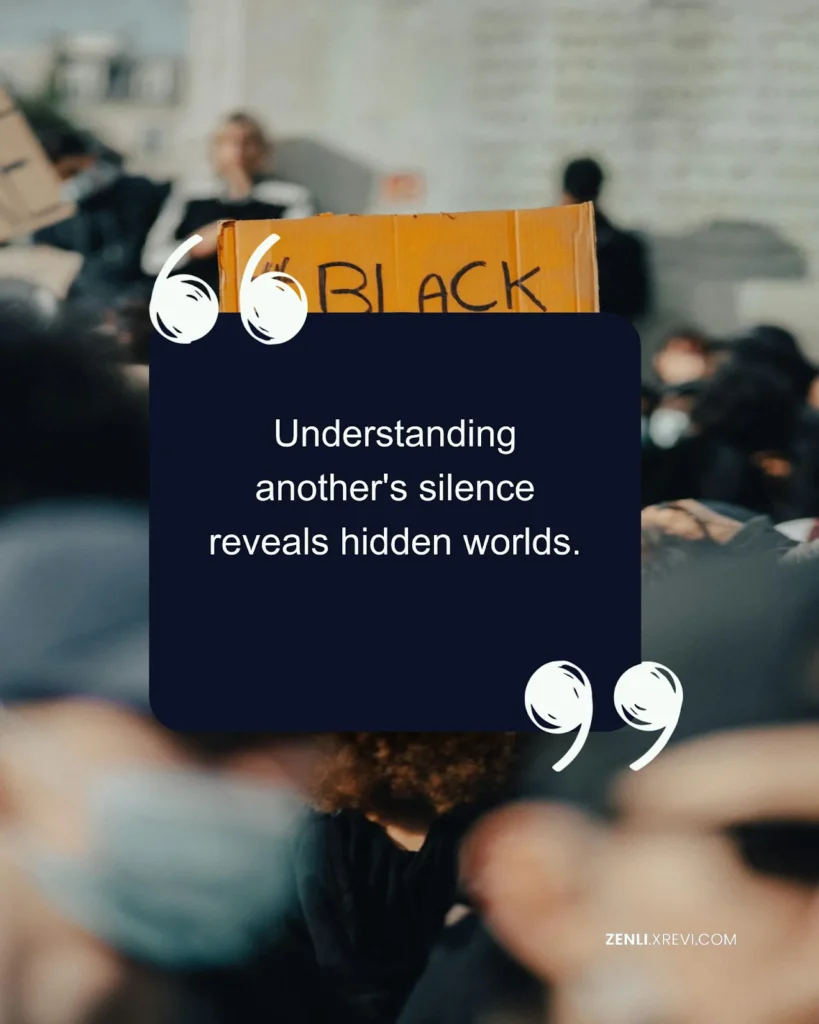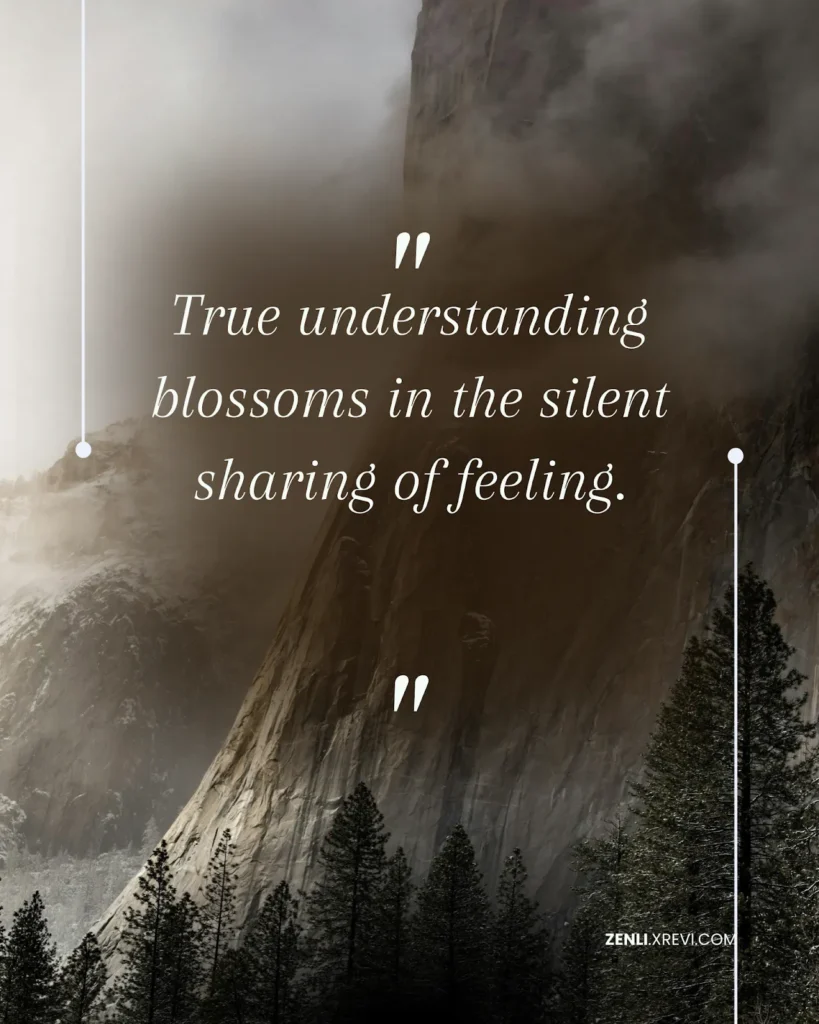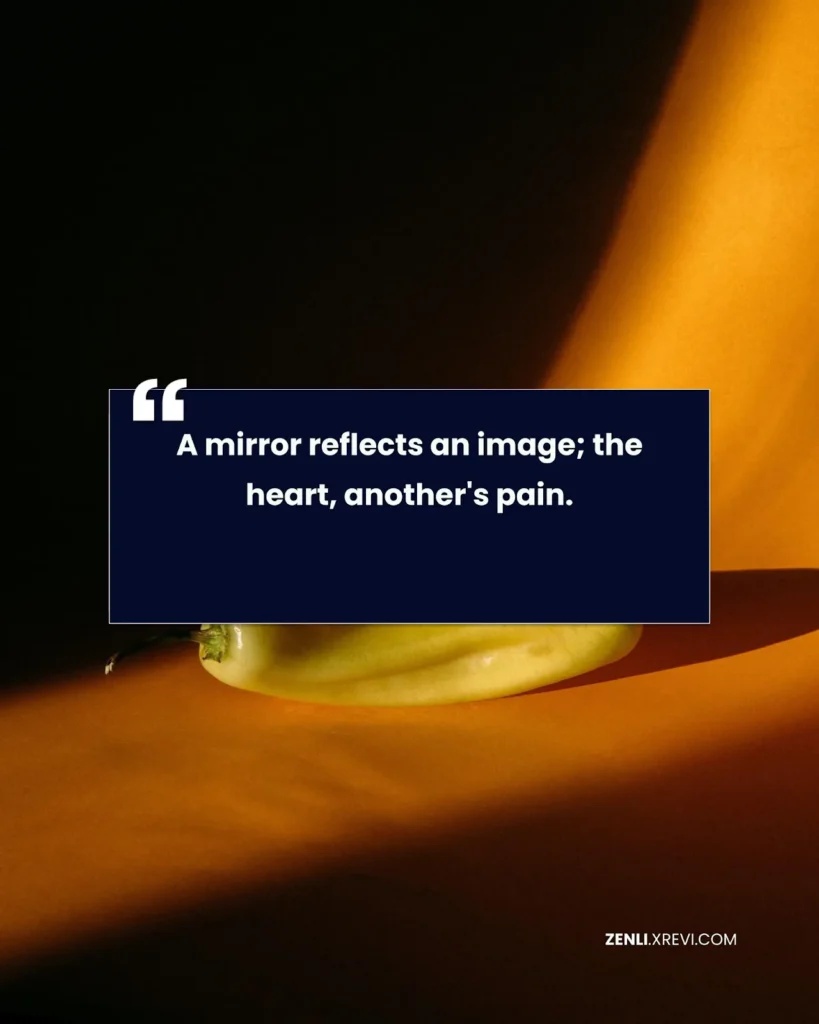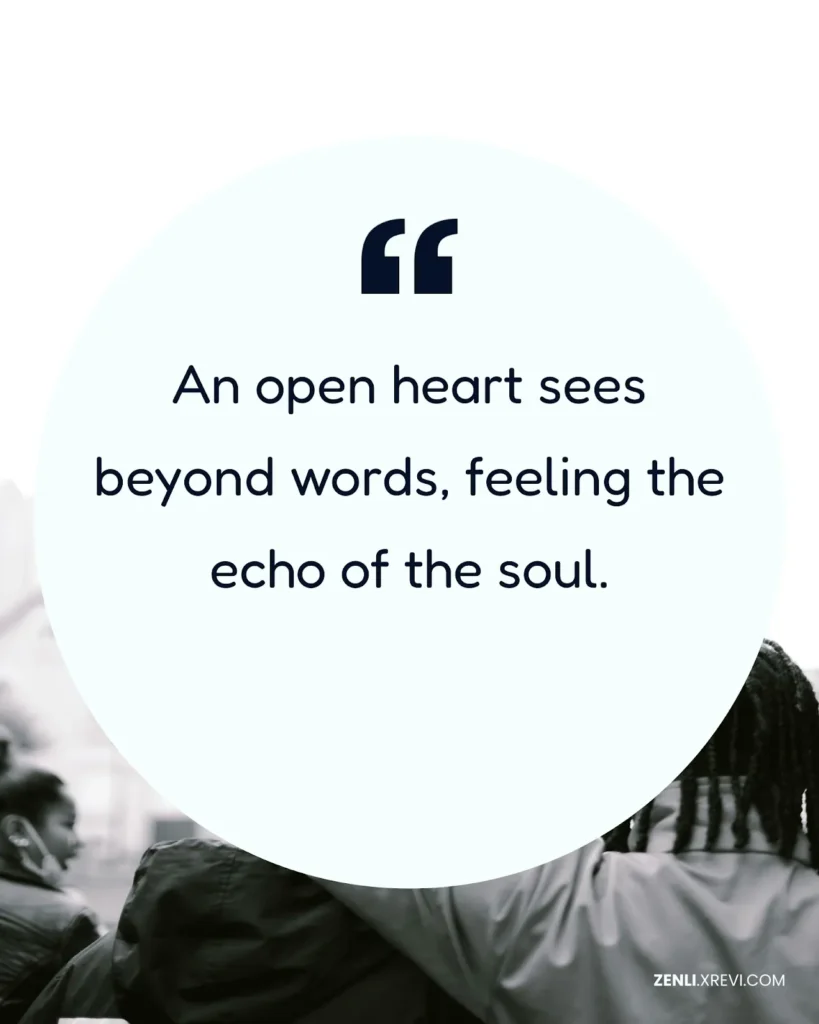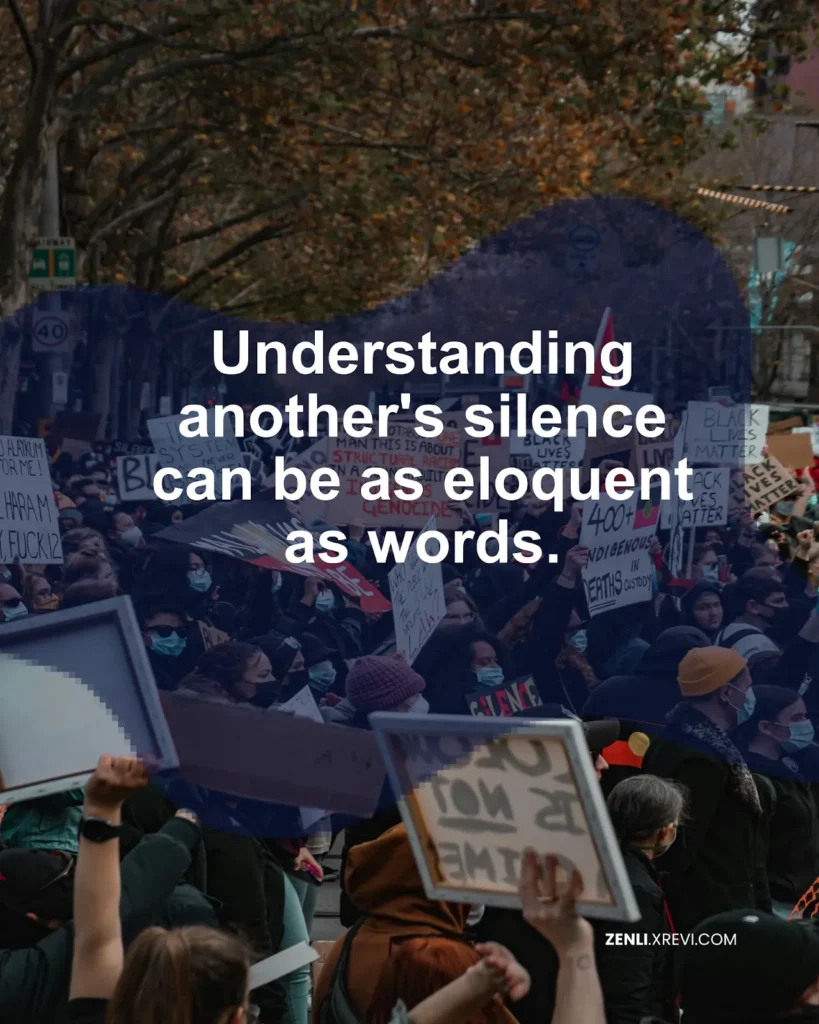We’ve all been there. Stuck in traffic, fuming at the slow driver in front. Annoyed by the incessant chatter on the train. Frustrated by a colleague’s missed deadline. In those moments, it’s easy to let our immediate reactions take over – irritation, annoyance, even anger. But what if, instead of jumping to judgment, we took a moment to consider the other person’s perspective? What if we tried to step into their shoes, even just for a second? That, my friends, is the essence of empathy. It’s not about agreeing with everyone or condoning bad behavior, but about understanding the underlying emotions and experiences shaping their actions. It’s about recognizing the human being behind the frustrating situation. It’s about recognizing that everyone is fighting their own battles, often invisible to us.
***
**Kindness: a moonbeam, briefly warming a frozen tear.**
***
This beautiful quote perfectly encapsulates the transformative power of empathy expressed through kindness. Think about it: a frozen tear represents pain, hurt, and emotional numbness – a state many of us experience at some point in our lives. The image of a moonbeam, delicate and fleeting, highlights the often subtle nature of kind acts. It’s not about grand gestures, but small, unexpected moments of connection that can thaw even the coldest of hearts. Maybe it’s a listening ear during a difficult time, a helping hand with a heavy load, or a simple, sincere compliment. These small acts of kindness, born from empathy, are like that moonbeam—a brief, gentle warmth that offers solace and reminds someone they’re not alone. For example, imagine a cashier having a terrible day; a simple “How are you doing?” and genuine interest can ease their burden even slightly, offering that momentary warmth to their “frozen tear.” Or consider offering your seat on the bus to someone who clearly needs it more than you – that act, rooted in understanding their potential exhaustion or discomfort, can make a significant difference. It’s about recognizing the shared human experience of hardship and offering comfort where you can.
The practice of empathy requires effort. It necessitates stepping outside our own self-centered perspectives and actively trying to understand the world from someone else’s vantage point. It’s a skill, not an innate ability, and one that can be honed with conscious practice. This isn’t about becoming a pushover or neglecting our own needs; it’s about building stronger, more compassionate relationships by recognizing the complexity of human experience.
In conclusion, cultivating empathy is a journey, not a destination. It starts with a conscious effort to listen, observe, and understand others’ feelings, even if we don’t necessarily agree with their actions. The quote, “Kindness: a moonbeam, briefly warming a frozen tear,” serves as a potent reminder that even the smallest acts of kindness, fueled by empathy, can have a profound impact on someone’s life. Take a moment today to reflect on how you can incorporate more empathy into your interactions. Share your thoughts on what acts of kindness have made a difference in your life, or how you plan to extend a “moonbeam” to someone in need. Let’s build a world where understanding and compassion shine brightly.
Photo by Emily Toycen on Unsplash
